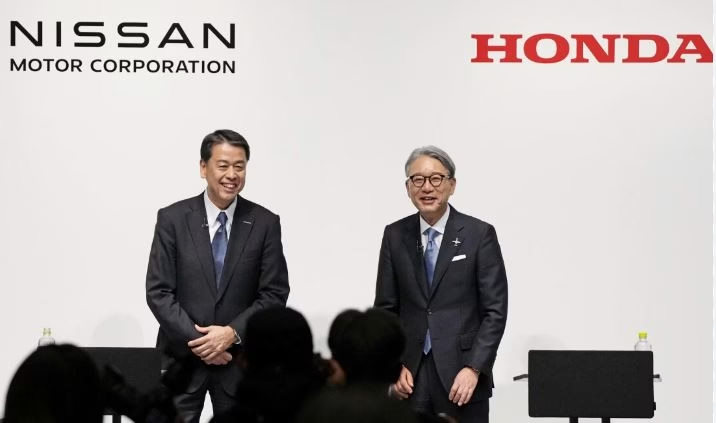Introduction
Nissan Motor Co. and Honda Motor Co., two of Japan’s most iconic automakers, are in advanced merger discussions, aiming to create the third-largest automotive group worldwide. This bold move reflects their strategic response to the shifting dynamics of the global auto industry, particularly in the electric vehicle (EV) and autonomous technology sectors. In this article, we delve into the history, motivations, and potential impacts of this groundbreaking merger.
Background
History of Nissan and Honda
- Nissan Motor Co.: Founded in 1933, Nissan has been a key player in the global automotive industry. Known for innovation, it launched the Nissan Leaf in 2010, one of the first mass-market EVs. Despite its pioneering efforts, the company has faced challenges in recent years, including declining sales and management scandals.
- Honda Motor Co.: Established in 1948, Honda has built a reputation for engineering excellence, particularly in motorcycles and automobiles. Its commitment to sustainability is evident in its ambitious plans to phase out internal combustion engines by 2040.
Industry Trends
The automotive sector is undergoing rapid transformation, driven by the rise of EVs, autonomous driving, and stringent environmental regulations. Both Nissan and Honda have struggled to keep pace with global leaders like Tesla and BYD.
Current Situation
Details of the Merger Talks
- Timeline:
Discussions began in mid-2024, and the boards of both companies approved formal negotiations in December 2024. A definitive agreement is expected by mid-2025, with the merger likely finalized by 2026. - Structure:
The companies plan to operate under a single holding entity. The possibility of including Mitsubishi Motors, in which Nissan holds a significant stake, adds complexity to the deal.
Objectives
The merger aims to:
- Consolidate resources for R&D in EVs and autonomous vehicles.
- Streamline operations to reduce costs.
- Enhance competitiveness in the global market.
Market Implications
If successful, the merger would position Nissan-Honda as the world’s third-largest automaker, following Toyota and Volkswagen. This would significantly strengthen their global market presence, particularly in Asia and North America.
Challenges and Criticism
Operational Hurdles
- Integrating two distinct corporate cultures and management styles poses a significant challenge.
- Analysts, including former Nissan CEO Carlos Ghosn, have expressed skepticism about the feasibility of the merger, citing past difficulties in similar alliances.
Stakeholder Concerns
- Investors: While the merger could yield long-term benefits, short-term disruptions may affect shareholder confidence.
- Employees: Potential redundancies and restructuring could lead to workforce tensions.
Impact Analysis
Financial Impact
- R&D Investments:
Pooling resources could accelerate advancements in EV technology, enabling the combined entity to compete effectively with Tesla and other industry leaders. - Cost Savings:
Analysts project annual savings of up to $3 billion through streamlined operations and shared manufacturing facilities.
Consumer Benefits
- Broader and more affordable EV offerings.
- Enhanced after-sales support and innovation-driven services.
Geopolitical Considerations
The merger highlights Japan’s commitment to maintaining its influence in the global automotive sector, especially amid increasing competition from China and the U.S.
Data Insights
Global Market Share (2024 Estimates)
| Automaker | Market Share (%) |
|---|---|
| Toyota | 10.5 |
| Volkswagen | 9.8 |
| Nissan-Honda | 7.2 (Projected) |
EV Production Projections (2026)
| Company | Annual Units (in millions) |
|---|---|
| Tesla | 3.5 |
| BYD | 3.2 |
| Nissan-Honda | 2.8 |
Future Outlook
Strategic Opportunities
- Expanding into emerging markets with affordable EV models.
- Leveraging joint expertise to pioneer hydrogen fuel technology.
Potential Risks
- Regulatory scrutiny from antitrust authorities in Japan, the U.S., and the EU.
- Unforeseen economic downturns that could disrupt planned investments.
Conclusion
The Nissan-Honda merger talks represent a watershed moment in the global automotive industry. If successful, this alliance could redefine competition and innovation in the EV and autonomous vehicle markets. While challenges remain, the merger offers a promising pathway for two legacy automakers to reclaim their leadership positions on the world stage.





